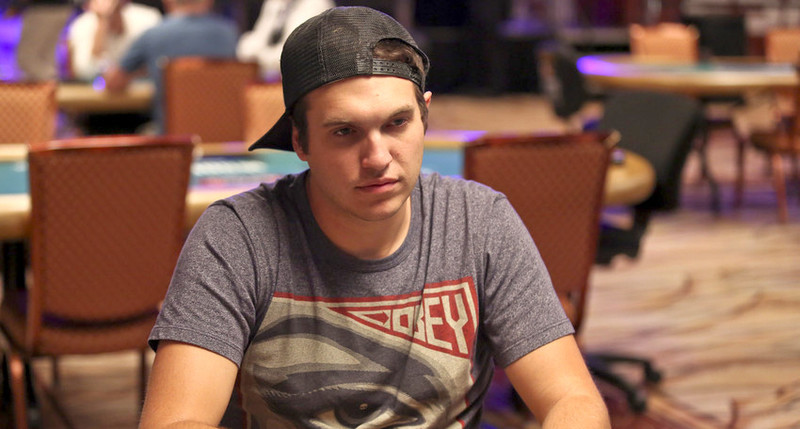






Your Tournament Lifeby Doug Polk | Published: Feb 01, 2017 |
|
|

The Upswing Poker Lab is a poker training course taught by Doug Polk and Ryan Fee. The Lab is updated regularly with in-depth learning modules, theory videos, and a wealth of information to make you a better poker player.
Tournament life is a widely debated subject, even at the elite levels of poker. Some players put far too much effort into preserving their final few chips, costing them their chance at a deeper run. Others don’t give protecting their tournament life a second thought, losing the last of their chips in avoidable situations. Tournament life obviously has some value, but just how much should it factor in when making decisions?
Your last chip in a tournament is more valuable than any other chip you can have. As long as you have at least one chip, you still have the ability to acquire more. This is important to protect (or at least to consider protecting.) If you start to worry too much about survival, however, you will end up playing too timidly and passively which can actually prevent you from being able to win the tournament.
Remember, winning the tournament requires that you win every chip in play. Adopting too passive of a style will lead to more final-table bubbles, near-misses and semi-deep runs that never materialize into something big. A lot of players will find themselves in this boat and not even realize it. It takes an actual humble reflection on your results and play to truly know if this is something you need to work on.
How do we find the balance between protecting our tournament life and still playing aggressive enough to win the tournament? The first and most important thing you need to consider is how close you are to the money bubble, final-table bubble or any other significant jumps. These are the spots where typically outlasting another player will significantly change the amount of money you make.
In these situations, it is very common for a fold to be worth another $15,000-$20,000 real dollars in equity while a double up only really increases your equity by about 1.5 times. You want to avoid these high-risk, low-reward scenarios, especially on the money or final-table bubbles of tournaments.
The second thing to consider in regards to tournament life is how other players are going to play against you in these situations. If you are playing too timidly, overvaluing your tournament life, and folding big hands, a good player is going to recognize this and exploit you. I have an aggressive, almost cavalier-type attitude towards my tournament life in that I don’t want to bust, but if I “have to” lose my stack, so be it. I am not going to avoid playing my best poker.
When facing an all-in, a practical way to account for your tournament life is to first think about what hands you would call against that same bet in a cash game. Then, fold just a few extra hands at the bottom of that range. That way, you are still willing to put your stack in a good amount of the time which makes it difficult for players to run you over. You are still playing aggressively enough to win the tournament, but you are factoring in the extra value of your last chip.
Additionally, it can be good to run a bluff for your tournament life if the correct situation presents itself. I think some players feel weird about doing it, but honestly, I would much rather bluff-off than call-off my tournament life on the river. In a lot of spots, you are going to get a decent number of folds because you are risking so much value by shoving in your last chip. Don’t go overboard with bluffing-off your tournament life, but remember that it’s okay to keep it in your arsenal on the bubble and final-table bubble.
Find the balance between aggression and protection when it comes to your tournament life. Don’t let your opponents push you around for the sake of a min-cash. A semi-deep run might feel pretty good the day of when compared to bubbling, but your passive play and refusal to take risks will have severely negative impacts on your long-term ROI. The top-heavy payout structure of tournaments means that if you want to be a winning player, you need to get to the top as often as possible. After all, that’s where the money is.
Sign up for the Upswing Poker Lab today for step-by-step instructions and examples to master both the fundamental theories and situational exploits to greatly increase your skill and earnings.